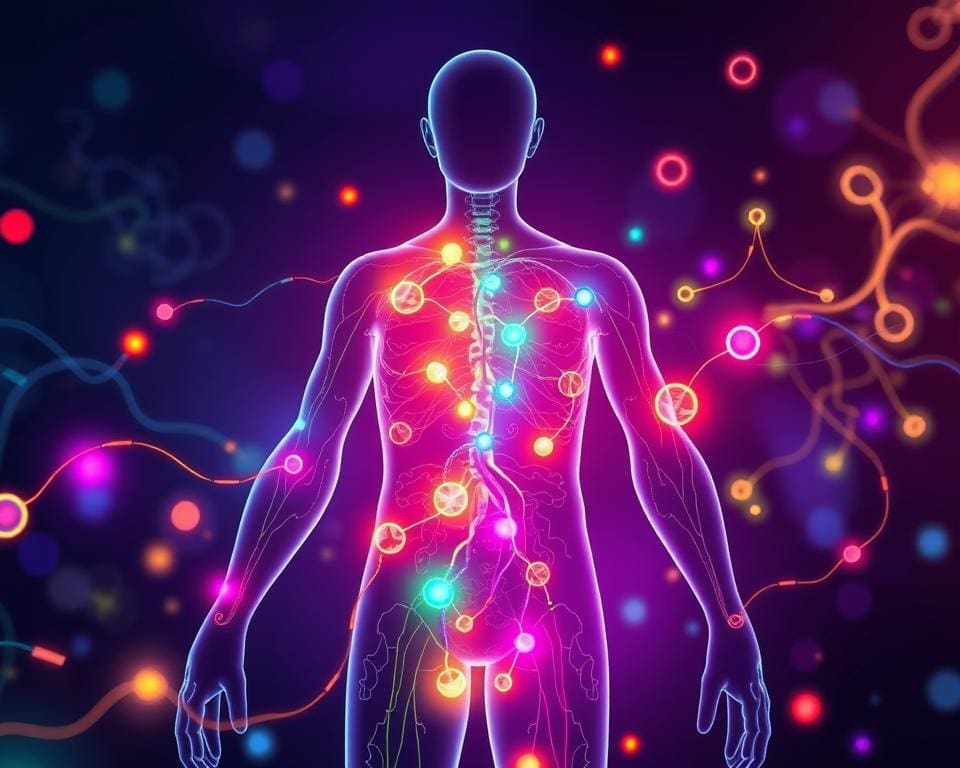Understanding the intricate link between energy levels and nutritional balance is vital for anyone seeking a healthy lifestyle. A well-balanced diet plays a crucial role in sustaining high energy levels, empowering individuals to thrive throughout their daily activities. Key nutrients such as carbohydrates, proteins, fats, vitamins, and minerals are essential for energy production in the body, working in harmony to enhance vitality and overall physical wellbeing.
Scientific studies underscore the importance of optimal nutrition as a pathway to improving energy expenditure and daily performance. By making informed food choices, we can significantly impact our energy levels, laying the groundwork for a life filled with vigour and enthusiasm.
Understanding Energy Levels
Energy levels in the human body are vital for maintaining optimal health and performance. Understanding the mechanisms of energy production provides insight into how nutritional choices can affect our overall vitality. The primary component in this process is adenosine triphosphate (ATP), which acts as the main energy carrier within cells. By delving into the biochemical processes involved in transforming food into usable energy, we can better comprehend the essential role of a balanced diet.
The Science Behind Energy Production
The conversion of food into energy begins with the breakdown of macronutrients. Carbohydrates serve as a rapid source of energy, breaking down into glucose, which fuels immediate physical activities. Fats offer a sustained energy supply, crucial for longer periods of exertion, while proteins play a supportive role by repairing tissues and maintaining muscle mass. These components work synergistically in energy production, illustrating the intricate relationships between nutrients and energy levels.
Factors Influencing Energy Levels
Several factors influence energy levels, ranging from dietary choices to lifestyle habits. Key factors include:
- The quality of your diet: A balanced diet rich in fruits, vegetables, whole grains, and lean proteins provides the necessary nutrients for optimal energy production.
- Physical activity: Regular exercise enhances muscle efficiency and endurance, contributing to improved energy levels.
- Hydration: Adequate fluid intake is essential for maintaining energy, as dehydration can lead to fatigue.
- Sufficient rest: Quality sleep allows the body to recover and maximise energy levels during the day.

Energy Levels and Nutritional Balance
Energy management relies heavily on the food choices individuals make. A well-structured, balanced diet contributes not just to overall health but also plays a pivotal role in maintaining robust energy levels throughout the day. Understanding which foods enhance optimal nutrition and how they work together can lead to a more vibrant lifestyle.
The Role of a Balanced Diet
A balanced diet is integral for sustaining energy levels. It involves a variety of foods that provide essential nutrients, including carbohydrates, proteins, fats, vitamins, and minerals. Each category contributes uniquely to energy production and management. For instance, carbohydrates serve as the body’s primary energy source, while proteins assist in muscle repair and growth, ensuring the body operates efficiently.
Food Choices That Enhance Energy
Selecting the right food choices can significantly affect energy levels. Including a mix of:
- Whole grains, such as oats and brown rice, which release energy slowly.
- Fruits and vegetables, packed with vitamins and antioxidants that support metabolic processes.
- Lean proteins, like chicken or legumes, that are crucial for tissue repair and recovery.
- Healthy fats, found in avocados and nuts, provide long-lasting energy.
By integrating these food choices, individuals can enjoy better energy management and reach their wellness goals. Practising a balanced diet lays the foundation for optimised energy production that fuels daily activities and supports an active lifestyle.
Optimising Your Nutritional Intake for Physical Wellbeing
In the journey towards improved physical wellbeing, understanding the significance of nutritional intake is paramount. Tailoring health strategies to one’s individual lifestyle, activity levels, and specific health goals can lead to remarkable transformations. By assessing personal dietary preferences and requirements, one can make informed decisions that not only fuel the body but also enhance overall vitality.
A thoughtful approach to diet involves incorporating a variety of nutrients that work collaboratively to boost energy levels and fortify wellness. Emphasise whole foods, minimise processed items, and include a balance of carbohydrates, protein, and healthy fats. This balance is essential; for instance, complex carbohydrates will sustain energy during activities, while proteins are vital for muscle repair and recovery.
Furthermore, hydration plays an often-overlooked role in optimising nutritional intake. Consuming an adequate amount of fluids can significantly enhance physical performance and cognitive function. Listening to your body and adjusting your nutrition intake accordingly enables you to harness the full potential of your lifestyle choices, leading to sustained energy and rejuvenated health. By embracing these practices, you’re not just enhancing physical wellbeing but creating a lifestyle that promotes long-lasting vitality and resilience.









